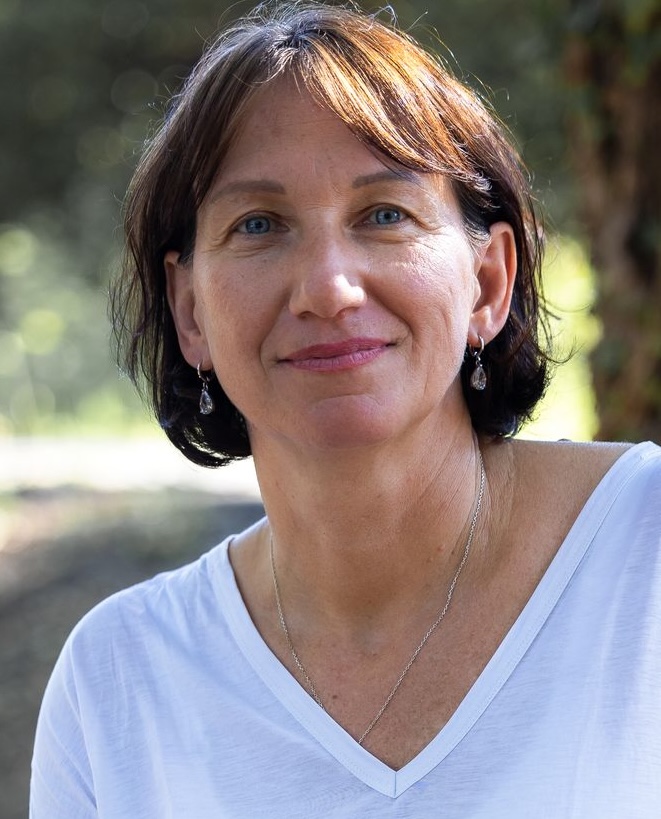TRAITER LES
TRAUMATISMES
AUTREMENT
La thérapie MOSAIC est une approche thérapeutique innovante, solutionniste, intégrative et expérientielle. Elle permet d’atténuer durablement les blessures psychiques et de dépasser les souvenirs douloureux sans exposition au traumatisme.

95%
Taux de satisfaction

Synchronisation neuronale
Comment fonctionne la thérapie MOSAIC ?
La thérapie MOSAIC s’appuie sur les neurosciences pour apaiser les souvenirs douloureux et installer un nouvel équilibre émotionnel grâce à trois mécanismes complémentaires.
Stimulations bilatérales
Mouvements oculaires, sons ou tapotements alternés (droite/gauche) qui aident à réguler les émotions, synchroniser l’activité cérébrale et installer une sécurité intérieure.
Synchronisation neuronale
Ces stimulations créent une synchronisation des réseaux cérébraux, permettant au cerveau de traiter les souvenirs difficiles dans un état sécurisé.
Activation d’une ressource interne
Le thérapeute aide la personne à renforcer une sensation corporelle bénéfique — apaisement, solidité, légèreté… Cette nouvelle expérience devient la référence qui remplace la réaction douloureuse initiale.
La différence MOSAIC
Contrairement aux thérapies qui reposent sur l’exposition au souvenir traumatique, la thérapie MOSAIC propose un chemin différent.
Elle mobilise les ressources internes de la personne et favorise la synchronisation neuronale, permettant un apaisement sans revivre la souffrance.
MOSAIC se distingue par sa démarche solutionniste et intégrative : elle ne reste pas centrée sur le problème et combine les apports de différentes approches reconnues (comme l’EMDR, l’IFS, les TCC, l’hypnose, la Gestalt, entre autres).
Cette intégration des neurosciences et de thérapies validées rend la méthode adaptable à de nombreuses problématiques, qu’il s’agisse de traumatismes, d’anxiété, de burn-out ou d’autres souffrances psychiques.
La thérapie MOSAIC accompagne de nombreuses difficultés psychiques et émotionnelles, par exemple :
Une méthode au service des patients et des professionnels
La méthode MOSAIC s'adapte à tous
Conçue à partir des neurosciences et de l’expérience clinique, la thérapie MOSAIC s’adresse à la fois aux personnes en quête de mieux-être et aux professionnels souhaitant enrichir leur pratique.
Pour les Thérapeutes
Vous êtes thérapeute ?
MOSAIC offre un protocole clair, fondé sur les neurosciences, qui complète et renforce efficacement les pratiques existantes. Les formations permettent d’intégrer une méthode innovante et professionnalisante, reconnue pour sa capacité à produire des résultats rapides et durables.
Pour les Patients
Vous êtes patient ?
MOSAIC aide à apaiser rapidement et durablement les blessures psychiques, les symptômes liés au stress ou aux traumatismes et à retrouver un sentiment durable de sécurité intérieure. La thérapie MOSAIC s’adapte à chaque âge et à chaque histoire.

À l'origine de la méthode MOSAIC
Dr. Stéphanie Khalfa
Experte des émotions et du stress, cofondatrice de MOSAIC, elle s’appuie sur 27 années de recherche en neurosciences.
Psychologue et chercheuse, Stéphanie Khalfa a consacré plus de 27 années de recherche au CNRS de Marseille, au sein du Centre de Recherche en Psychologie et Neurosciences (CRPN, UMR 7077). Ses travaux portent sur les mécanismes cérébraux des émotions, du stress et des traumatismes psychiques.
Formée à différentes approches thérapeutiques (EMDR, hypnose ericksonienne, thérapies cognitives et comportementales, communication non violente, IFS, neurofeedback …), elle a toujours cherché à relier pratique clinique et découvertes en neurosciences.
Depuis 2021, elle développe et enrichit de façon indépendante la thérapie MOSAIC, dans une démarche scientifique, éthique et clinique.
Lauréate du Prix David Servan-Schreiber, elle est reconnue pour la qualité et la rigueur de ses recherches sur les effets thérapeutiques des stimulations bilatérales.
Elle intervient régulièrement comme formatrice et conférencière, auprès des professionnels de la santé et de la relation d’aide.
2019
Création de MOSAIC
+1100
Praticiens formés
Témoignages
L'expérience de ceux qui ont choisi MOSAIC
Shanti R.
Psychologue clinicienne (13)
"L'approche Mosaic est bluffante, dans ses résultats, et très douce pour les personnes qui l’expérimentent et retrouvent un mieux-être et beaucoup d’espoir dès la première séance. En tant que thérapeute il est agréable de percevoir leur apaisement, mais aussi d’accompagner leur accès à des états de conscience lumineux."
Marie B. (94)
Patiente, Juillet 2025
"Pendant des années, j'étais très stressée dans le métro et l'ascenseur dès qu'il y avait du monde. Après une seule séance MOSAIC, tout a changé : la fois suivante, je suis montée dans le métro sans même y penser. C'est ma fille qui m'a fait remarquer qu'il y avait beaucoup de monde... et je n'avais ressenti aucune angoisse. Quatre mois plus tard, je n'ai jamais revécu ce stress."
Brigitte O.
Psychologue
"Je tiens à exprimer mon immense gratitude à Stéphanie, d'avoir eu l'opportunité de suivre les différents modules de la thérapie Mosaic. Son approche pédagogique, la clarté des explications, sa disponibilité ont grandement contribué à mon enrichissement professionnel, à ma compréhension et mes connaissances. Ce fut une expérience incroyable qui a considérablement changé, amélioré et élargi mon expertise professionnelle. Merci"
Alexandra KB (26)
Patiente, avril 2024
"La thérapie MOSAIC permet de faire un voyage à l'intérieur de soi dans le calme et la douceur pour mieux se connaître et mieux se comprendre. Le résultat est un bien être immédiat sur le court terme et, sur le long terme,..."
* Les témoignages sont anonymisés pour préserver la confidentialité
Formations MOSAIC
Des formations professionnalisantes pour intégrer la thérapie MOSAIC dans votre pratique
Pour les professionnels et praticiens de la relation d'aide
Formation de Référence
Module fondamental de 4 jours pour acquérir les bases de la thérapie MOSAIC
- 2 jours e-learning + 2 jours présentiel
- Pour tout praticien de la relation d'aide
8 Spécialisations
Approfondissez votre pratique avec des modules ciblés
- Traumatismes complexes
- Troubles anxieux, Dépression, Addictions
- Transpersonnel, Couples, Groupes
- Bébé, enfant, adolescent
Supervisions
Perfectionnez votre pratique avec un accompagnement personnalisé
- Supervision de groupe
- Supervision individuelle
- En ligne ou présentiel